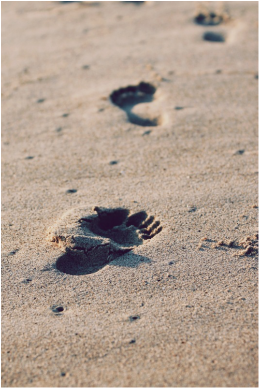Mindfulness: Going With the Flow in the River of Change

Mindfulness is a way of bringing awareness to the present moment in your everyday life. By learning to be present through simple mindfulness practices, and living mindfully each day, you can acquire both transformation and healing.

The eight-week Mindfulness Based Stress Reduction Program (MBSR) offers participants the opportunity to explore alternative ways of dealing with stress and to begin seeing everyday challenges differently.
Stress often triggers a wide range of emotions, thoughts, and body sensations and can have negative effects on us.
With Mindfulness tools and daily practice we can develop more resiliency in the face of stress. We can also recognize that no matter what, there is more right than wrong with us and we start befriending ourselves and becoming aware of who we are.
By simply paying attention to what is happening during our day, in our relationship with others, we cultivate more of a “presence” with ourselves and others. Mindfulness is how we choose to respond to the stressors we encounter daily and offers us a more compassionate approach in our daily interactions with others.
Research by David Black of the Mindfulness Research Guide offers many insights into the benefits of this practice. Mindfulness is being offered not only in the medical field, but also in public schools and within corporations across the world.
A recently published book called Mindfulness for the Next Generation: Helping Emerging Adults Manage Stress and Lead Healthier Lives can help college students deal with anxiety and a challenging environment, and reduce the need to go on medication.
Today, more than 80 corporations and small businesses have made mindfulness-based training available within their organizations. Mindfulness in corporate environments helps employees transition back to work or deal with the stress at work and is often part of their wellness programs.
Stress often triggers a wide range of emotions, thoughts, and body sensations and can have negative effects on us.
With Mindfulness tools and daily practice we can develop more resiliency in the face of stress. We can also recognize that no matter what, there is more right than wrong with us and we start befriending ourselves and becoming aware of who we are.
By simply paying attention to what is happening during our day, in our relationship with others, we cultivate more of a “presence” with ourselves and others. Mindfulness is how we choose to respond to the stressors we encounter daily and offers us a more compassionate approach in our daily interactions with others.
Research by David Black of the Mindfulness Research Guide offers many insights into the benefits of this practice. Mindfulness is being offered not only in the medical field, but also in public schools and within corporations across the world.
A recently published book called Mindfulness for the Next Generation: Helping Emerging Adults Manage Stress and Lead Healthier Lives can help college students deal with anxiety and a challenging environment, and reduce the need to go on medication.
Today, more than 80 corporations and small businesses have made mindfulness-based training available within their organizations. Mindfulness in corporate environments helps employees transition back to work or deal with the stress at work and is often part of their wellness programs.
"It is hard to fight an enemy who has outposts in your head."
- Sally Kempton

Janice Maturano, formerly of General Mills, has now developed the Institute for Mindful Leadership, offering workshops and programs within organizations. She shared the following observations:
Mindfulness training is about your life. It isn’t about the time you meditate on a cushion or chair. It is about learning to be awake for each moment of your life.
The good news is that you can bring your training into everyday moments without adding any more demands on your already too-packed schedule. I like to call these moments Purposeful Pauses.
It isn’t just about stopping, it is about noticing what is here to be noticed when you stop. And it is about redirecting the attention when it takes off into the future or the past. This is a continuation of the attention training you experience when you are practicing meditation on your cushion or chair.
These Purposeful Pauses allow you to step off the daily treadmill and perhaps find some spaciousness in the day to make more conscious choices.
Interest in Mindfulness is spreading and, as Jon Kabat-Zinn states in his article in the Mindful magazine, Mindfulness has a big future in our society.
“We’re now very good at writing code—but how good are we at knowing ourselves, loving ourselves, and making a good world together with our fellow human beings?”
Mindfulness training is about your life. It isn’t about the time you meditate on a cushion or chair. It is about learning to be awake for each moment of your life.
The good news is that you can bring your training into everyday moments without adding any more demands on your already too-packed schedule. I like to call these moments Purposeful Pauses.
It isn’t just about stopping, it is about noticing what is here to be noticed when you stop. And it is about redirecting the attention when it takes off into the future or the past. This is a continuation of the attention training you experience when you are practicing meditation on your cushion or chair.
These Purposeful Pauses allow you to step off the daily treadmill and perhaps find some spaciousness in the day to make more conscious choices.
Interest in Mindfulness is spreading and, as Jon Kabat-Zinn states in his article in the Mindful magazine, Mindfulness has a big future in our society.
“We’re now very good at writing code—but how good are we at knowing ourselves, loving ourselves, and making a good world together with our fellow human beings?”
|
Purposeful Pauses
With each Purposeful Pause below, practice noticing when the attention drifts and redirect it back to where you are now.
For more information, visit www.InstituteforMindfulLeadership.org. |
Mindfulness is about being fully awake in our lives. It is about perceiving the exquisite vividness of each moment. Benefits of Mindfulness
Interest in mindfulness is spreading around the world at a lightning pace. The Conference Board of Canada offered a live webinar on Mindfulness in August 2013 with Dr. Joe Flanders and he spoke of how practicing mindfulness can help:
|
The Mindfulness Based Stress Reduction (MBSR) Program
|
Employee stress costs Canadian businesses $12 billion in health claims, lost productivity, and absenteeism (Statistics Canada).
Absenteeism due to stress has increased by over 300% since 1995 (Statistics Canada). Every $1 invested in stress prevention is worth $3.40 in future savings (Health Canada). MBSR Program Details
Cost: $400 (or what you can offer) Duration: 8 weeks Each 2--hour session includes:
To learn more contact Bernice at [email protected]. |
About the Program
The program teaches us how to become more aware of the influences that affect our well-being and how to find peace-of-mind and balance in our life. The MBSR program teaches participants to better cope with stress and the demands of everyday life through mindfulness practices and tools. What is Mindfulness? Learning to live in the present moment through conscious effort by being completely present and fully aware of the current moment. Mindfulness can be used to enrich your life, calm your mind and even improve your health. It’s a practice to help offset the adverse effects of stress by responding more effectively to challenges we all face in our lives. Mindfulness is how we choose to respond to the stressors we encounter daily and offers us a more compassionate approach in our daily interactions with others. Who Developed the MBSR program? The program was developed by Dr. Jon Kabat-Zinn, practitioner and author at the Center for Mindfulness at the University of Massachusetts Medical Center and is based on his teachings. The February 2014 issue of Mindful Magazine features Jon Kabat-Zinn. Review the magazine at Chapter’s or McNally bookstore or at mindful.org. |

